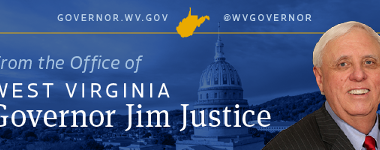By Autumn Sheldon, WV Press News Sharing
CHARLESTON, W.Va. – Recent layoffs in the West Virginia Department of Environmental Protection’s Office of Oil and Gas have left only nine inspectors to ensure the safety of 75,000 oil and gas wells, both active and abandoned, throughout the state.
Some state officials say with estimates that the number of new wells will continue to increase in future years, the time has come to find a reliable means of funding the office, bringing its workforce back to full strength and returning its ability to effectively regulate the oil and gas industry.
One idea that may solve the funding issue would be passage of Senate Bill 613, currently making its way through the legislative process. The bill, originally introduced on Feb. 10 by Lead Sponsor Senator Randy Smith, R-Tucker, would dedicate 1.5% of the oil and gas severance tax (at FY 2020-21 estimates of $128 million per year) to the WVDEP Office of Oil and Gas, resulting in approximately $1.9 million that would go into a special revenue fund each year.
Members of the Senate Energy, Industry and Mining Committee met on Thursday, Feb. 24, to discuss the bill and what it would mean if passed.
During the meeting, Scott Mandirola, WVDEP deputy secretary for external affairs, explained that in 2020, staff was reduced from 45 employees to 25 due to “lack of funding,” leaving only nine field inspectors, down from 18. He added that the only funding the office receives is from one-time well permit applications fees.
The application fee for a horizontal well is $10,000 for the first well on a pad and each additional well costs $5,000. Conventional wells cost $650, Mandirola continued, in response to questioning. He said the office receives about 11-15 applications per month.
“The only money we ever get as far as revenue for that well is when we drill it,” Mandirola told committee members, stating that this is unlike other offices, such as mining, all of which have yearly fees associated with them.
In response to a question posed by Senator Michael Romano, D-Harrison, about the possibility of placing a cap on funding as a precaution against the “boom or bust” nature of the oil and gas industry, Mandirola said the additional funding would be placed in a special revenue account that would not “revert back to general revenue,” leaving enough in the account for bust years.
“The hope would be that the carryover would hold us through the peaks and valleys,” Mandirola said.
Senator Chandler Swope, R-Mercer, asked Mandirola if funding would be at an appropriate amount if a cap and minimum equation was used, explaining that this type of cap would provide the office with a reasonable amount of funding to avoid a multi-million dollar accruement.
“Any way we can get the revenue to shore up our program is acceptable to the DEP,” Mandirola responded. The $1.9 million in extra revenue would allow the office to hire back the nine inspectors lost in 2020, a vital component of the office, according to Mandirola.
Inspectors must be on-site when a well is drilled, according to Mandirola. Inspectors are also responsible for addressing citizen complaints, responding to spills and providing specific types of site maintenance. At this time, inspectors spend most of their time at new well sites or at sites with frequent issues, including those with numerous citizen complaints, he added.
“There is very little time left to routinely inspect wells at this point,” Mandirola noted.
“There is no inspection frequency designated in the rule or code, but each inspector . . . has a region of the state and they are responsible for all of the wells in operations that are occurring in oil and gas in that region,” Mandirola said. The state is, however, adequate in meeting a 40-day turnaround for new permit applications.
Mandirola responded to a question posed by Senator Eric Nelson Jr., R-Kanawha, that many well operators will inspect their own well sites. He added that not every well requires yearly checks.
Lastly, Mandirola said that there is no federal enforcement agency to provide inspections in oil and gas like there is in the coal mining industry, so if the state should abandon its inspections, none would take place.
Following this discussion on SB 613, committee members agreed to move a committee substitute, with clarifying language, to Senate Finance for additional consideration, but recommended that the bill do pass.
In other Senate Energy, Industry and Mining Committee business, committee members agreed to move Senate Concurrent Resolution 1 to the floor with recommendation that it do pass.
As read by counsel, SCR 1, a committee originating bill, relates to the powers of the Office of Miners Health, Safety and Training. It requests that the office study the “feasibility of creating within it a division dedicated to the protection of health, safety and training of all energy producing facilities of the state” and make a report to the interim committee at a later date.
“My thoughts on this is we always hear from all the energy sectors that they are not treated fairly,” Committee Chair Smith said. “I have had some guys who work on gas rigs saying that they are worried about electrical and that nobody inspects them but OSHA, and OSHA never shows up unless there is a fatality. This is just to try to bring all the energy sectors and study that.”
“We don’t want to overregulate, but I feel we need some protection there for workers in other industries,” Smith concluded.





